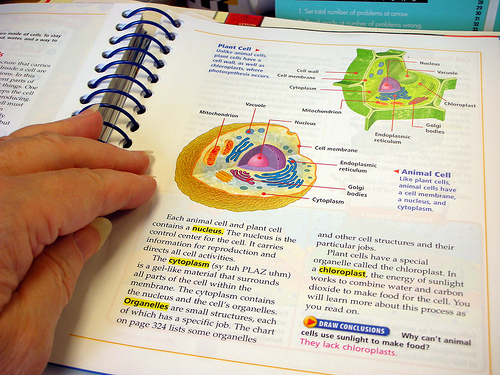 |
Facts
Duration: 1 semester
Period: Spring Semester
Credits: 4 ECTS
Contact Hours: 32
Self-study: 112
Hours: 144
|
Main Objectives
Course objectives include developing scientific and scientific-informative text creating skills and equipping Master students with effective instruments for mediated intercultural communication in research sphere: acquiring skills and methods of creating a plenipotentiary representative of a research texts a the target language in correlation with national specificity of scientific discourse and peculiarities of representation of various types of research texts.
Learning Outcomes
A students should know:
- basic programs used for professional communication and professional text translation;
- principles of scientific text creation and structuring;
- general rules of research text design in Russia and English-speaking countries
- ways and types of argumentation;
- requirements to scientific publications; the basics of proofreading and peculiarities of scientific text proofreading;
- strategies and methods of written translation, abstracting and annotating of scientific texts in Humanities in Russian and English;
- strategies of linguocultural adaptation of texts;
- linguistic features of Russian and English scientific discourse;
- types and main concepts of machine translation systems
- features of translation memory system SDL TRADOS.
A students should be able to:
- proofread research texts in correction mode;
- translate professional texts describing innovations rich n neologisms;
- to design the results of research as scientific articles in Russian and English;
- create logically correct scientific texts with relevant and sufficient argumentation;
- proofread scientific texts;
- create research texts of a given genre;
- process professional texts for non-specialists
- meet the requirements to contents and design of scientific publications;
- translate articles, abstracts, annotations, reviews, summaries in Humanities at a high professional level;
- produce and translate grant applications for various research supporting funds;
- put together and maintain glossaries, dictionaries and information resources in various fields of Humanities;
- work with different sources, dictionaries and translation memory programs (SDL TRADOS)
Students should acquire skills in:
- choosing theoretical and methodological bases for current research in the field of creation and translation of scientific texts;
- using SDL Trados;
- preparing scientific papers for research conferences;
- writing research articles;
- self-correction and proofreading of research texts translations;
- stylistic adaptation of texts;
- translating research texts on Humanities subjects.
Professor
Tikhomirova Yulia Alexandrovna, PhD in Philology, Associate Professor of Faculty of Philology
Course annotation
|
Course unit code |
М2.В.ОД.2 |
|||||||||||
|
Course unit title |
Creation and Translation Techniques of Scientific Texts (Translation Module) |
|||||||||||
|
Name(s), surname(s) and title of lecturer(s) |
Translation Module (taught in English): Tikhomirova Yulia Alexandrovna, PhD in Philology, Associate Professor of Faculty of Philology (Creation Module is taught in Russian) |
|||||||||||
|
Level of course |
Master |
|||||||||||
|
Semester |
2 |
|||||||||||
|
ECTS credits |
4 |
|||||||||||
|
Working hours |
Contact hours |
32 |
||||||||||
|
Self-study |
112 |
|||||||||||
|
Total |
144 |
|||||||||||
|
Work of placement |
N/A |
|||||||||||
|
Prerequisites |
To enrol on a course students should have studied the following disciplines:
|
|||||||||||
|
Language of instruction |
English/Russian |
|||||||||||
|
Objectives of the course |
Learning outcomes |
A student’s assessments methods |
||||||||||
|
Course objectives include developing scientific and scientific-informative text creating skills and equipping Master students with effective instruments for mediated intercultural communication in research sphere: acquiring skills and methods of creating a plenipotentiary representative of a research texts a the target language in correlation with national specificity of scientific discourse and peculiarities of representation of various types of research texts. |
A students should know:
A students should be able to:
Students should acquire skills in:
|
Test translations |
||||||||||
|
Teaching methods |
Educational techniques used:
|
|||||||||||
|
Course unit content |
Course objectives are:
Gained knowledge and skills – |
|||||||||||
|
List of Topics |
Topic title |
Contact hours |
Assignments and independent study hours |
|||||||||
|
1. Peculiarities of scientific text translation 1.1 lexical difficulties of scientific text translation 1.2 difficulties in translating grammatical constructions; 1.3 syntactical peculiarities of scientific texts and ways of their translation; 1.4 stylistic peculiarities of scientific text translation 1.5 epistemological difficulties of scientific text translation |
4 |
10 |
||||||||||
|
2. Types of scientific and technical text translation 2.1 full written scientific text translation; 2.2 summary text translation and its functions, 2.3 annotative translation, its peculiarities and functions; 2.4 consulting translation and its use |
4 |
10 |
||||||||||
|
3. The stages of work over scientific text translation 3.1 semantic and pretranaslation text analysis; 3.2 creating a draft translation; 3.3 translation of titled other structural components ; 3.4 methods and techniques of proofreading |
4 |
10 |
||||||||||
|
4. Special and general word stock. Types of contractions on research texts and their translation. International, pseudo-international, polysemantic words. False friends of the interpreter. |
4 |
10 |
||||||||||
|
Assessment requirements |
The credit test includes translation of research texts from Russian into English and English into Russian. 1. Written translation of a research article English into Russian (10000 – 15000 characters) followed by editing (2 hours, PC/laptop, dictionaries). 2. Written translation of a research article Russian into Russian (10,000 – 15000 characters) followed by editing (at home to be presented in class, PC/laptop, dictionaries). |
|||||||||||
|
Assessment criteria |
Max. score - 100
|
|||||||||||
|
The composition of final accumulative mark |
Student’s portfolio, attendance and participation in classroom activities, final exam assessment mark |
|||||||||||
|
Author of the course |
Translation Module (taught in English): Tikhomirova Yulia Alexandrovna, PhD in Philology, Associate Professor of Faculty of Philology Creation Module (taught in Russian): Ayzikova Irina Alexandrovna, Doctor of Philology, Professor of the Faculty of Philology |
|||||||||||
.png)